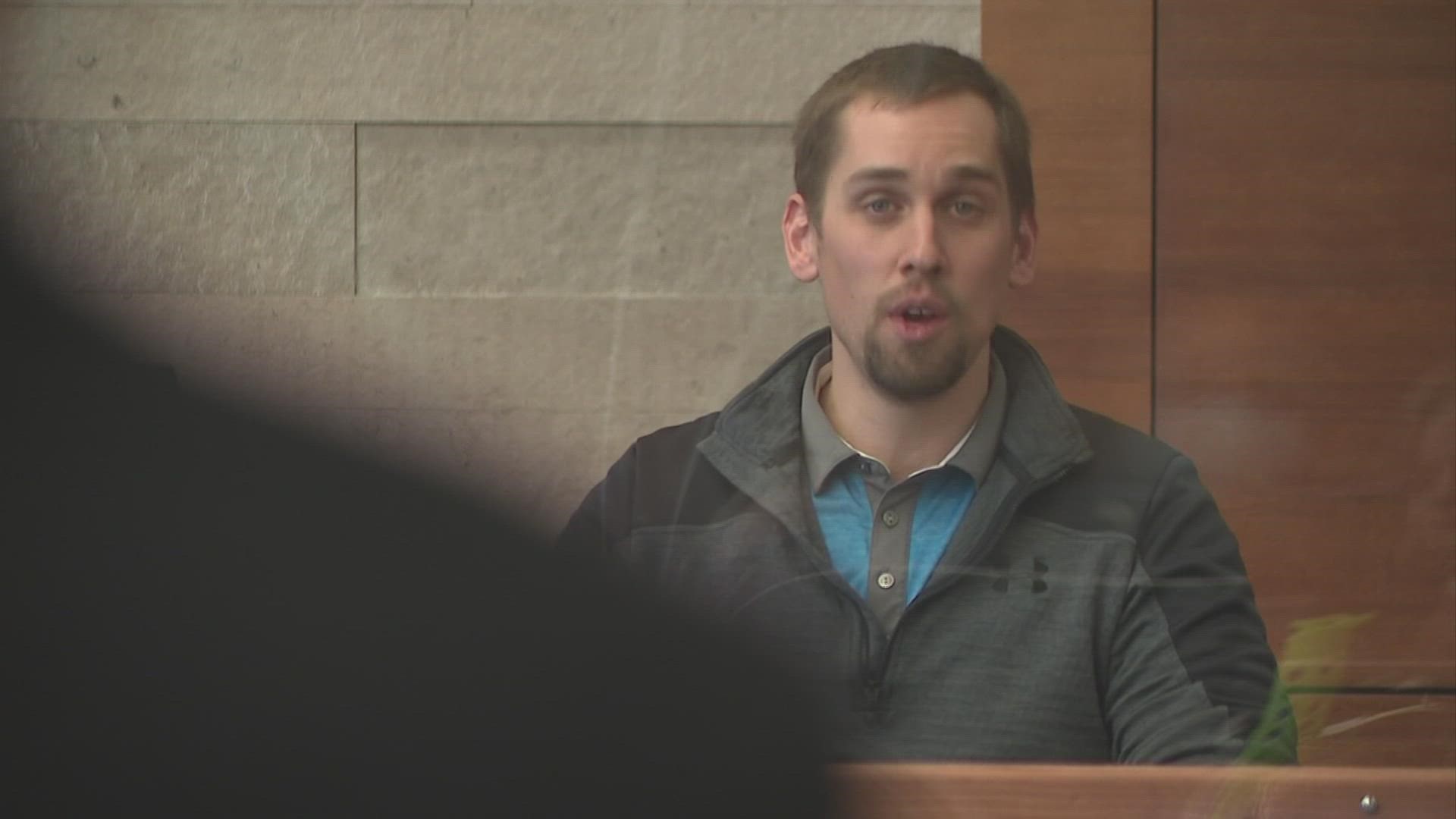COLUMBUS, Ohio — A pharmacist who worked the overnight shift inside Mount Carmel West told jurors that he thought Dr. William Husel’s fentanyl orders were “unusual” and questioned the now-former Mount Carmel physician about it.
Husel is on trial – charged with 14 counts of murder – accused of ordering lethal doses of fentanyl be given to his patients. He has pleaded not guilty. His defense team argues the physician was providing comfort care to dying patients.
During the second day of testimony, pharmacist Talon Schroyer described how it was the pharmacist’s role to verify or object to medication orders from physicians in order to ensure patient safety and “appropriate outcomes.”
He recalled an instance in which he questioned a dose ordered by Dr. William Husel, saying he picked up the phone and asked the doctor: “Did you add an extra zero?”
Schroyer said that Husel told him “nope we are doing a procedure.” Schroyer said he verified the order but also leaned on his fellow pharmacist and Mount Carmel colleague, Gregory Dresbach, for advice.
After their conversation, Schroter said: “I understood that I was not crazy for thinking it was unusual. But it wasn’t necessarily unusual for Dr. Husel. I could call and question, but it was not likely to be changed.”
Schroyer also testified about how the pharmacy was bypassed – a critical element in this case – through the use of an override function on a Pyxis machine, which is an automated medication dispensing system that was used by Mount Carmel Health System.
Schroyer testified that it wasn’t “uncommon” for the override function to be used to gain access to medications.
(Court depositions reviewed by 10 Investigates as part of our reporting on the civil litigation in this case revealed that the use of override function was more common in Mount Carmel’s ICU where nurses could use it to access anything from Tylenol to sterile water to powerful painkillers like fentanyl).
When news of the patient dosing scandal became public in January of 2019, the Centers for Medicare and Medicaid Services sent state health inspectors from the Ohio Department of Health to investigate Mount Carmel West. In their review of patient records, inspectors discovered that override functions were used to access fentanyl and other drugs in 24 out of the 27 patient cases they reviewed.
Prosecutors allege that in the majority of these cases, the pharmacists’ role to verify orders was undermined as medications were accessed via overrides in the Pyxis machine and given to Husel’s patients.
Schroyer said that presented a challenge to pharmacists who couldn’t object to the order after it was given. “It’s water under the bridge by then. Maybe you could prevent it from happening again, but in this instance, it’s already been done.”
Prosecutor David Zeyen later demonstrated how 10 vials of fentanyl would have had to be withdrawn to create a dose as large as 1,000 micrograms.
Earlier in the morning, defense attorney Jose Baez concluded what had been more than two hours of cross examination of Det. William Gillette, a Columbus Police cold case homicide detective assigned to investigate the case. Baez’s questioning was critical of Gillette’s investigation, pressing him on why he didn’t follow up with other nurses or ask more pointed questions of dosing procedures or how ventilators are removed from palliative patients.
Gillette responded by saying he leaned on requests from the prosecutor’s office and is not a medical expert. Prosecutors later said that Gillette was one of a handful of detectives on the case.
The trial is expected to last at least 8 weeks. More than 50 witnesses are expected – including doctors, pharmacists and nurses who worked inside Mount Carmel.

